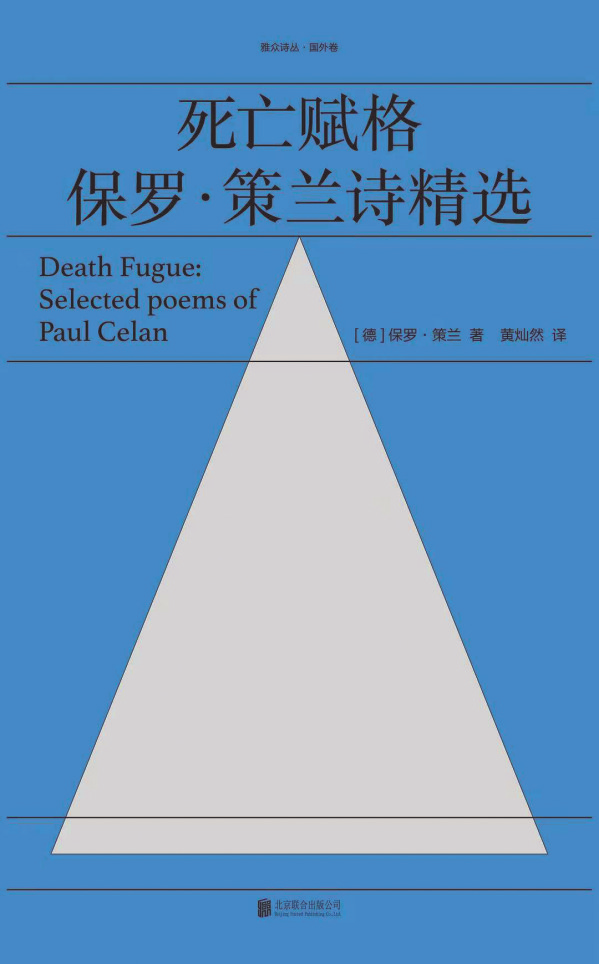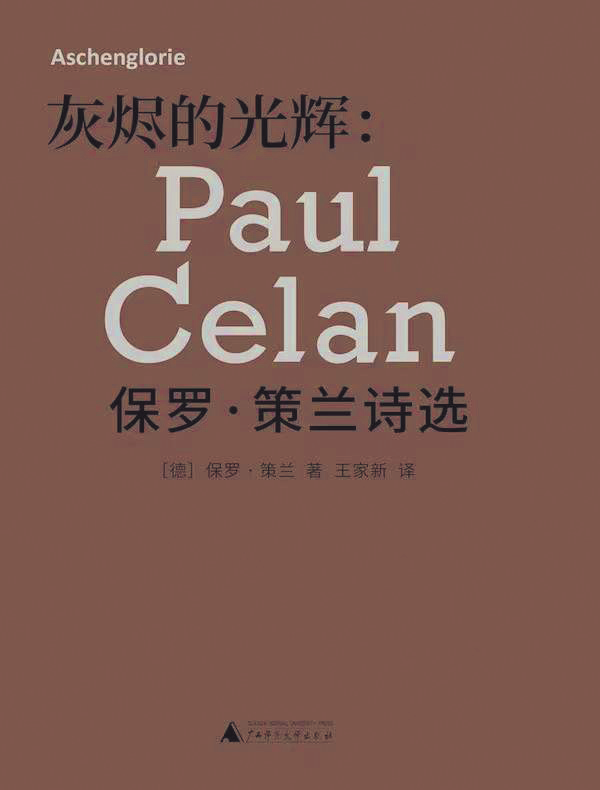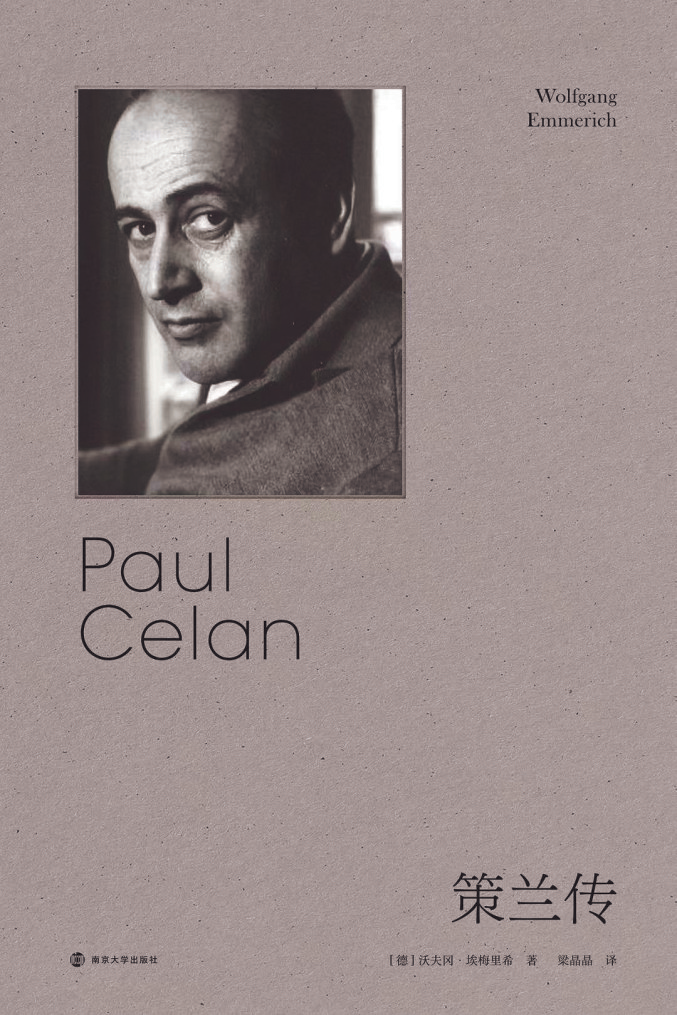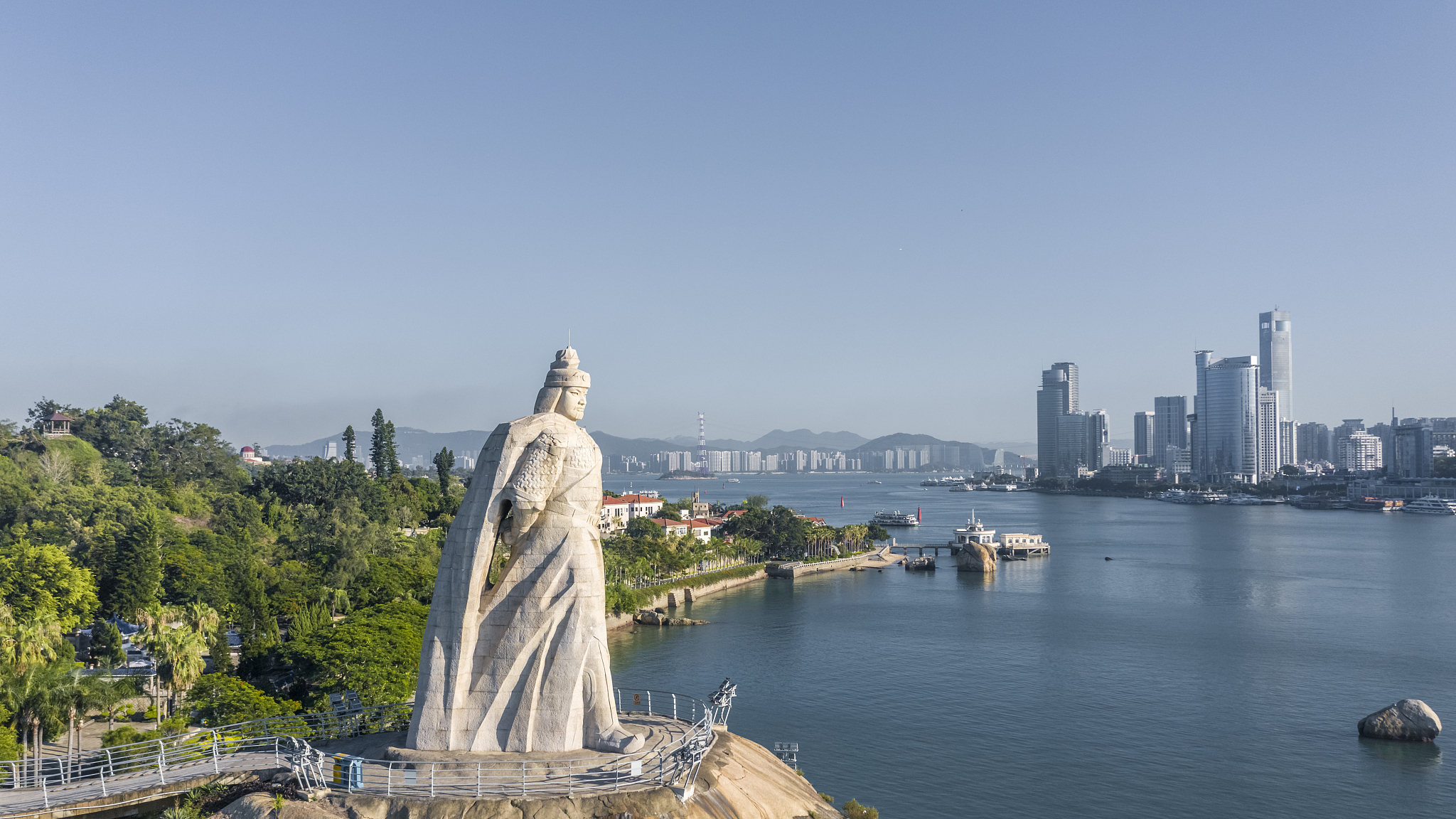Poetry of Paul Celan and Oschitin
Author:Art newspaper Time:2022.08.25


Paul Celan
Many years later, in the face of the moment when the Seine River jumped in depth at the Mirapo Bridge, Paul Celan would definitely remember the day and night when he was forced to work in the Tabarest concentration camp. The German poet was trying to get out of the shadow and nightmare brought to him throughout his life, and he was trying to get out of the nation and almost perish but became the tragedy and trauma of his survivors. Towards the end of life. If "the death of the poet" is a kind of "poetic philosophy", then Celan has added a little more superwriting theological color to this philosophy, making him vivid and solemn.
Who is Paul Celan? It is no longer a problem. "The Sands of the Cartanence", "Poppy and Memory", "From the Threshold to the Threshold", "Word Fair", "Unmanned Rose", "Evilning", and "Line Sun Group" shaped his poet image again and again in various historical periods, Celan Not only did the "chestnut on the chestnut is the world", but also wrote "the stone is finally about to bloom", fear, anxiety, humiliation, emptiness, loneliness, depression and symbol, metaphor, virtuous, ambiguity, jump, break, break It was intertwined without trace, like Eliot, like Mandelstham, Kafka, and Rilke. Different from the predecessor Shixian, Celan's poems are more complicated, more dismissed, more obscure, and more difficult to understand. This is naturally closely related to the poetry of the poet, but in terms of Celech Lan, the impact of life journey is much more important than grammar and rhetoric, such as "Death Fuge", "Tomb Ben", "Popular Tree" and other masterpieces.并非只存在于修辞学层面,策兰在给友人的一封信中写到,“大家都说,我最近出版的一本书是用密码书写的。请您相信我,此中的每一个字They are directly related to reality. But they do not understand. "If you want to understand Celan's poems, you must understand those profound reality. Then, what does the poet's writing" directly related to reality "? This is to start with who Celan is.

Celan is a Chelinitz. Today, Calnovitz has been renamed Chelinov. It is a small town in the southwest of Ukraine. The population of less than 300,000 has brought together more than 60 ethnic groups, which shows the complexity of its historical. Chelnowitz is the capital of Bukovina. It is located at the foot of the Karba Mountain. Since ancient times, it has been a transportation hub and a historic city connected to the East and the West. At the time when Celan was born, the city belonged to Romania with the disintegration of the Austro -Hungarian Empire and the depression of the Habsburg dynasty. From 1940 to 1941, the Soviet Red Army, the Romanian army, and the German SS assault team settled in. At the end of World War II, Calnovitz was once again occupied by the Soviets, and North Bukovina was eventually classified to the Soviet Republic of Ukraine. South Bukovina still belonged to Romania until the 1990s. The historical changes in the 20th century made Chelnovitz the master, and almost every time it brought to the city either war, it was expelled, either a slaughter, or a slavery. The Chelinitz people suffer from the suffering of the war. Become Romanians, Russians, Germans, and Ukrainians, so Celan said in the "Bhieme Speech" that he "entered the state of unspeakable state at all times" and became a one and became a one. No root bird.
Celan is a Jew. In Bukovina, the Germans and Jews have lived together for hundreds of years. Some of Celan's ancestors came from the Bokovina Jews who lived here for generations, and some came from Jews who moved from East Galisia to this. The parents and parents have become a small bourgeois intellectual in German. Celan's father, Leo Antler-Tortler, accepted the extremely strict orthodox Jewish education. His mother Fedrik was born in a businessman who believes in orthodox Judaism. They "have maintained the Jewish tradition. As a typical pragmatic cloth Kovina, who are not harmful and not seriously damaged to tradition, and simplify their lives. " However, in July 1941, the German SS came to Chelnowitz and began to send and kill the Jews, and then changed the fate of everyone. On the autumn and winter 1942, his father was in Mikhalovka in the east of Boghe. The concentration camp died of illness, and soon the mother was shot in a concentration camp. At that time, Celan was participating in forced labor in Tabarest until February 1944. The family, like tens of thousands of Jewish families, first wives, and then separated from yin and yang. Even after becoming a Jewish poet, the impact of the Jewish identity still plagues Celan, which has to mention the "Gore incident". After the death of Celan's close friend, Ivan Gore, his widow confronted Celan translated Gore's poems. The translation was not very satisfied, and even accused Celan's most important poem collection "Poppy and Memory" as a "plagiarism" work, and spread this unreal news to the literary circle, making many media and writers believe it. What is even more disturbing is that this kind of unprecedented accusations and injuries are also mixed with the "anti -Semitism" wave of "anti -Semitism" in the late 1950s. What's more, some people repeatedly mentioned that the death of Celan's parents was just a lie that was fabricated at the time, all of which deeply hurt Celan after the "Auschwitz". The past that seemed to have nothing to do with Jewish identity actually caused Celan's damage to racism, and its impact was not far -reaching. Celan is a survivor of the Holocaust. In the summer of 1941, before the Romanian troops were standing firmly, the German SS assault team came to Chelnowitz to destroy the Jewish church, kill cultural group leaders, and then forcibly set up Jewish isolation zones to exile them to Denes The concentration camps on the east bank of the Special River and the German concentration camp, Chelnovitz Jews had to face the fate that heaven was not given to them. The Celan family continued to live in her hometown in the first year, but one night in July 1942, Celan discovered that his parents disappeared, and he was immediately assigned to work for the Labor Service Department established for the Jews to work. In February 1944, he was transferred to Tabaresti in eastern Romania to participate in the road construction. Although Celan finally walked out of the concentration camp, his parents left him forever. In a letter to his friend Erich, he wrote, "My parents were killed under the German gun. Krasno Polka ... I now realize the humiliation and emptiness, the boundless emptiness ... "Different from those who died in a concentration camp, Celan is the survivor of the Holocaust; The survivors of the Holocaust survival of the concentration camps such as De De is that Celan's parents died. This has more or less affected Celan's memories of the past as the survivor of the Massacre. His mother became an important theme of his concentration camp or the time of 1941-1945. The pain and nothingness of the living.
Celan is an exile. In February 1944, Celan left the labor camp and returned to his hometown with the feelings of Cheronovitz. Unexpectedly, whether it was time or space in the past, it was gone. It can be described as faintly dreamy, and they are all in the wind and rain. The poet had to go south to the capital of Romania, Baltster, and began his long exile life. In Balt, he translated his books and wrote poems, and translated Lemontov's "Contemporary Heroes" and Kafka's "In front of France" and other works. He wanted to live quietly there. The King of Romania abdicated, and the muzzle of the new regime aimed at Jews like Celan, so that he had to defeat Vienna. Even if it comes to Vienna from Bologast to Vienna, many people are either shot or arrested when they transit Hungary. Through the help of snake heads, Celan finally fakes Tao Hungary. Unfortunately, he was notatable and could only settle in the refugee camp. After that, Celan's livelihood and wrote poetry, and finally had a stable residence, but found that as Jewish refugees were getting more and more, Vienna, a German city in German, also began to diffuse anti -Semitic emotions. Okay, this time the destination is Paris, France. I am afraid that the poet himself did not expect that this stop was 22 years, and Paris became the last habitat in his life. When I first arrived in France, Celan's life was hard and tuned. He said, "I am very lonely here. In this wonderful city, I was at a loss. I have nothing except the leaves on the French sycamore trees." As his biographical author, Volgang Emeryi, said that Celan at the time, "No nationality, no property, no work, no name." Celan later introduced his situation at the time. "He used to be a factory as a factory Workers, interpreters, and translations are translated as a living, difficulty. " In 22 years, Celan changed six apartments. Although he could stand in Paris and become an important German poet in Paris, at the spiritual level, he had no hometown. Celan is a German poet. Bukovina was originally a multi -language and religious place. In the local area, it is not new to speak a few languages at the same time. The same is true of Celan. He was originally a German school, and later studied at the Hebrew School, but speaking with his parents at home was standard German. After the Soviet army entered the Calinovitz, the Soviet army made the Bokkovina region a Ukrainian territory. Celan began to learn Russian, and later, he came to France, of course, he could speak fluent French. Therefore, Celan can speak at least German, Italian, Romanian, Ukraine, Russian and French, but he insists on writing in German. On the one hand, German is his mother tongue and the language of his mother. He loves German, so he speaks, "Dialects are unfortunate to us -always keep it from it." Said, "Saying fluent German is a necessary thing." In Celan's view, writing in German is naturally a natural thing; on the other hand, according to Stanner's logic, the third empire promotes the war of war itself to blame itself. It was sacred German, and Celan was resistant to contaminated German through the "redemption" of language. In the Book of Bhieme Literature Award, Celan emphasized that "only after all the language remains, you can still grasp it. . But it must pass through its own response, must pass through the terrible silence, and pass through the darkness of thousands of heavy murders. "In fact, if you choose to write in French, he can have a greater impact in France, but he can I didn't do that. Because of this, he not only became a German writer, but also a German writer, and his language gave him the last nationality.

All this "reality" has shaped a richly rich Celan: he was born in Cylinovitz and experienced a concentration camp massacre to lose his parents and become a survivor. Jewish poet. Only by understanding the suffering of the nation in Celan's life, the fall of his hometown, the departure of the relatives, the trauma of memory, and the pain of spiritual spirit, can we understand his poems about "Oswitin". This has to mention "The Sands of the Cartanence" and "Poppy and Memory". KSrp Publishing House was published, but Celan, who was in Paris, found that many prints had a lot of printing errors, and they were annoyed. They ordered the publisher to destroy the collection of poems. "Poppy and Memory" was launched by Deutsche Publishing House at the end of 1952 and was officially published in the early years of the next year. "Ernica" is a masterpiece of Picasso.
This masterpiece, which was first created in May 1945, was first translated into Romanian's "Contemporary" published in the Human Magazine of Bologast. Its theme directly pointed to the Nazi concentration camp. "Black milk in the morning", "Grave in the Air", "Snake", "Magrett", "Surami", "Master Germany" and other images have continued to appear. Activity, "he whistled and called his Jews to dig a grave on the ground/he ordered us to play music on the spot." Polybach and Schubert, he will go to Oswing concentration camp in the morning ", plus the use of duplicate, comparison, rhythm, image, etc., constitutes the tension of this poem. Behind tension is anger and strength. , Make "Death Fuge" the sound of Celan. In fact, in the early poetry of Celan, the poems about "Auschwitz" not only ended "Death Fuge", "Over", "Lullays" and "Poppy", etc. His earliest poem about concentration camps. In addition, the leaving of the mother caused Celan to have a huge trauma. That hurts your storm? The fields in the field know that your heart is tolerate gentle tolerated your angels "; like" Black Snowflake ":" Mom, autumn flowing away from me, snow is already burning. Me: I look for my heart and let it cry. I found it, this breath, oh summer, like you. "In these poems, the historical memory and mental trauma of the concentration camp presents the concentration camps, Celan and and Like the Keltos Emrey and Plimo Levi Massacre survivor writer, he tried to nail "Osvex" in words and words on a shame pillar. Of course, unlike the creation of the survivors of the Holocaust of the novel, Celan is a poet. His way of presenting history is poetry. This is destined that he will construct a concentrated camp and massacre in a poetic way. The first is a symbol. It is the soul of poetry. From the era of Podlair, Malame to Eliot, Ye Zhi, almost all poets have continuously expanded the connotation and extension of energy and extension in their own text, let alone need to be unnecessary. Say Celan, a poet who is improving with language. In Celan's poems, black, poppies, stones, ashes, candlelights, mothers, sand, and snow become labeled symbolic words. It has a strong meaning of discourse. In the words about these images, the poet can see the poets. Memories, silent resistance, humble anger and slight hope. According to Line Wellek, the symbols in the poem can be traditional or private. In Celan, traditional public symbols are hardly seen. When it appears, Celan will also give it different meanings, such as sand, in Celan's poems, ash or scum, naturally reminiscent of the burning furnace of the concentration camp; Often symbolizes death, his symbol is always meaningful. The symbol of the common rhetoric of poetry, but Celan always associates symbolic objects with his past, establish a secret connection between self and symbols, and produce even the poetry that the poet can understand. Only when I can understand why Celan said, "I am at the time and space of my readers; they can only interpret me from a distance, they can't grasp me, they just hold the fence between us."
The second is overwhelming. In Celan's poems, the so -called superwriting refers to transcending practical experience, that is, surrealism in the literary sense. Celan emphasized more than once that many of his poems are actually realistic, not the non -reality that readers or critics say. The letter explained, "As we all know, in this poem, the" tomb in the air 'is neither borrowed nor metaphors ", but he is unrealistic to construct reality and meaning. On the one hand, as early as the Battle period, Celan began to read the works of the Romanian modern classic writers at that time, including Lucia Braga, Tuodar Algaz, Alexander Laipi, and met again. The surrealist writers such as Garacim Luca and Paul Paen, and their influence on Celan is obvious; on the other hand, Celan itself has already existed itself for irrational, unconsciousness, and sensitivity, and surrealism is both both. Mutual text and complementarity, which is related to reading Chryst, Nietzsche, Rilk, Kafka, and Traquel in his youth, especially in the avant -garde art capital in Paris to come into contact with futuristic and Da Da Da Da Da Da Da Da Da Da Da. After Daicism, it deepened the attributes of the Super League in the poem. For example, "Well Bian", "Say, how can I use this rotten hoe, how can I/the night and full of wealth? Your eyes are confused because of full four years; the tall grass is burnt by my footsteps." ; No matter about "Gray Grassy", "migratory bird javelin has already flew across the wall, and the branches on the soul are already white. Like the eyes she opened in death ", multiple images are intertwined in these poems, jumping, insertion, and collage, and there seems to be no connection between words and words, and because the author’s thoughts and emotions intervene in the intervention Generate huge tension.
The third is silence. If the poetry in the early period of time, he found that since he wrote "Death Fu Ge", he began to bid farewell to "Fogge", or to say goodbye to the writing posture or aesthetics of "Death Fuge", many poems, many poems, many poems, many poems, many poems, many poems Start pursuing the simplification and simplification of language. Celan knows that German has been alienated during the war. As a German poet, he must resist this alienation. Celan's cleverness is that he chose to silence. This is because only silence can represent that it can no longer express The soul and heart, as Walg Gamba Emeryi said in the Biography of Celan, the poem of Celan in the 1950s, "Beautiful and beautiful, beautiful, and fascinating 'fantastic" 'Image -these are no longer; in the face of extensive praise caused by misunderstandings, the writer seems to be completely unable to tolerate his original writing method. "He began to change another way to modify the language and deliberately narrow the language of the language. The scope of function, deliberately pursuing the silence of words, and silently expressing silent silence in sound language is Celan's literary pursuit for a long time. In his other title "Word Fair" he wrote, "The floor tiles are close to each other, these dilemmas/heart gray: two/full of silence", "gray" and "silence" have become Celan In the poem center in the 1950s, he tried to express the meaning of silence with the meaninglessness of language and declared silence with silence. Looking back at it, in terms of "Auschwitz", silence is both silent and silent resistance. Symbol, overwhelming and silence are the ways of Celan's concentration camp and massacre, including the elements of poetry, and the elements that exceeded poetry. "Oschitin" is rare in the construction of the words of "Oswitin", so poeticity really constitutes the uniqueness of Celan. In terms of ideology, it seems that Celan, Emre, Levi and others are survivors of the massacre, but in fact they still have differences: on the one hand, most of the massacre such as Emre and Levi survived After saying that the "time distance" that says long and not short or short, it is said that the concentration camp was pursued after a few years later. The creation is "witness literature". When Celan created "The Sands of the Ashes" was in a concentration camp. The original intention of those poems was not to prioritize the "witness" after a few years, but I am afraid that it was only for the local "words" or "lyric". At least in Tabarest's hard work concentration camp, he is writing poetry for himself; on the other hand, Emre and Levi and others are pursuing the truth in "witnessing literature", Emre's irony, Levi’s Reality is intended to accurately describe the concentration camp in the camera, and I look forward to the truth that can have empathy with readers. And because Celan created at the closest moment of the concentration camp or the closest time from the concentration camp, he never thought why he needed truth, so his poems chose to use the vocabulary group, meaning field, and ideological domain that can only be understood by himself. It is clear that he and Celan's expression can be seen that he does not pursue his empathy with readers.
Isn't because Celan wrote poetry, can you "witness" Oswing? of course not. It can even be said that no one is more clear than Celan as the party. Both the victims and the perpetrators need to keep in mind the massacre forever. Moreover, just during his rolling period, the Germans' attitude towards the massacre was ambiguous, and he even focused on many waves in his heart. How could he not want to understand the concentration camp in later people? In the poem after Celan's "Oschitin", it is full of despair, sadness, silence, anger, division, pain, humiliation, and nothingness. The lyrical existence exists, and then it proves that only the catastrophe that the world cannot imagine can arouse the despair that the world cannot imagine. Unfortunately, no one would really understand Celan. He was convinced of this, so he chose to end his life actively. He did not leave a book for anyone, nor did he not be good at anyone, and went to death alone. Behind him, people discovered that Celan Apartment in Zoran Street, No. 15 district was cleaned, and the desk was on the desk with the Biography of Wing Mixai in William Mixai. The sentence he thought was important, which was quoted from Clemences von Burentano. "Sometimes, this genius will become dull and be trapped in the bitter well."

Content source: Literature and Art News August 23, 2022
WeChat editor: Lu Yimeng
- END -
Liu Bairong | Infinity of Wudi Tian Road, let me swim in Yuqiong (eight original poems)

Seven Laws [Traveling]Take control of MTR, and Teng Gao into the long sky.Sitting ...
Zheng Chenggong Culture Festival on both sides of the Strait will start next Thursday

The Zheng Chenggong Culture Festival on both sides of the 2022 Strait will be laun...